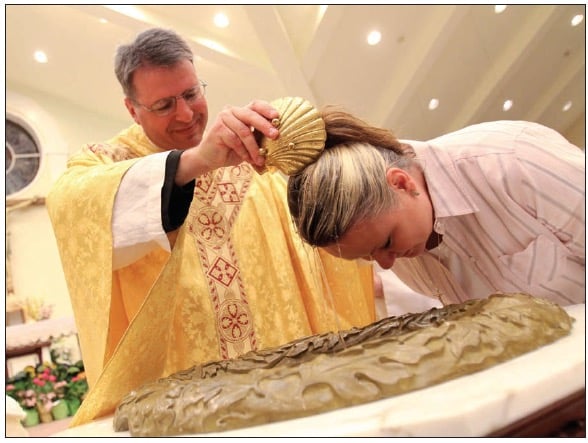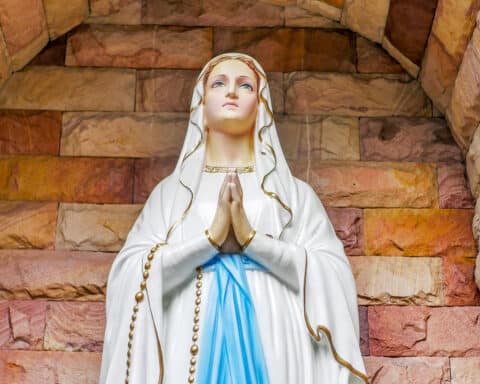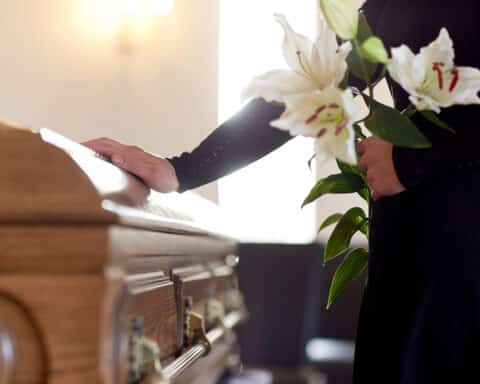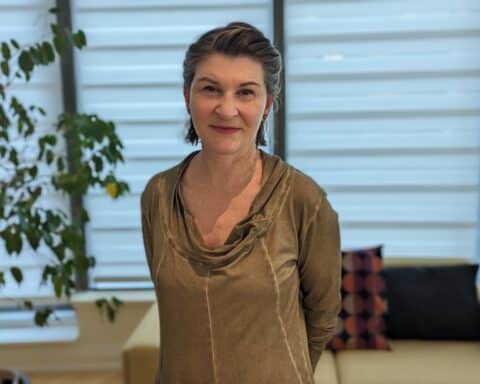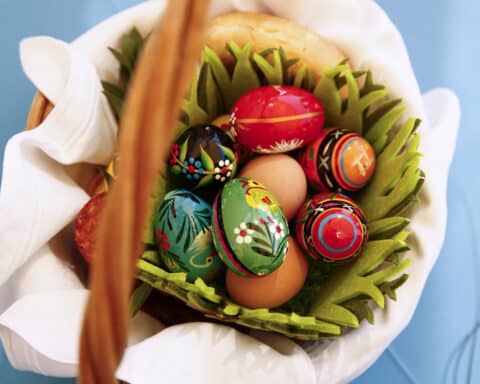An adult convert once told me that joining the Catholic Church was like stepping out of a dark room into the sunlight. I can relate. Never once have I regretted making this life-changing decision to become a Catholic. I was not knocked to the ground like St. Paul, but appreciate the apostle’s words to the Galatians: “I live, no longer I, but Christ lives in me” (2:20).
At midlife and guided by God’s grace, I discovered Catholicism as the one true faith and eagerly accepted even the teachings that my non-Catholic friends suggested would be troubling. I listened, watched, prayed and entered into a Church founded not by a man or group of men, but by Jesus Christ. There is a unity in our Church that transcends cultures and languages; I became part of the universal People of God.
In retrospect, my only disappointment is that I didn’t take this action earlier in life. Unfortunately, my concept of Catholicism had been formed primarily by hearsay.
As a child, I was taught the basics of Christianity, but knew little about Catholics except that they ate fish on Friday, worshipped statues and, for the most part, were hypocrites. Hypocrites in that they would party hard, behave badly, go to confession and then behave badly again. Looking back, my knowledge of Catholicism was incomplete at best. Archbishop Fulton Sheen addressed my flawed perception when he wrote: “There are not a hundred people in the United States who hate the Catholic Church, but there are millions who hate what they wrongly believe the Catholic Church to be.”
Too many ‘churchy’ things
After the emotions of the Easter Vigil, many new Catholics don’t know what to do next, and parish ministries provide an opportunity to get and stay involved.
Early on, a priest cautioned me not to start doing “churchy” things. He wasn’t saying not to help out in the parish, but to avoid letting myself get so consumed with activities that I would neglect increasing my knowledge of Church teachings and beliefs.
|
“Christian is my name, Catholic is my surname.”
— St. Pacian, fourth century |
Receiving instructions or going through the RCIA program provide a good foundation for the Faith, but that education is only the beginning. Suddenly I was part of this beautiful faith but feeling a little embarrassed because I was not yet seasoned in all the rituals, the customs and devotions. The new Catholic is asked to participate in and believe things they had not previously encountered, such as receiving the body and blood of Jesus Christ at Communion, the sacraments, Eucharistic adoration, the Rosary, the Communion of Saints — not to mention trying to master the pew missal and comprehend that Easter and Christmas are more than one-day events.
Unlike the Catholic exposed to Church teachings from birth, the zealous convert immediately tries to go from zero to 60. I ignored the advice about going slowly and submerged myself in multiple parish activities. While not bad experiences, after a year or so I realized that the activities were dominating my spiritual life.
I suppose some converts can handle being enveloped by simultaneous commitments but, in my case, that priest was right. So I reduced my involvement in parish duties, concentrating more on a closer relationship with Jesus and the Blessed Mother, while seeking to better understand my faith.
Discerning the truth
One uncomfortable experience for many converts is the differing responses to the questions they have. At first, I tended to think that every cradle Catholic, or convert after a couple years in the Church, could answer any question about Catholicism. In fact, everyone I asked did have an answer, in many cases a different answer. I soon recognized the need to be careful about my sources of information.
Confession, moreover the frequency of confession, was a concern for me. I embraced the Church teachings on penance and reconciliation, about seeking forgiveness, confessing your sins, and I understood that the priest acts as Christ in the confessional. But how often should I go to confession?
Someone said Pope St. John Paul II went to confession every Friday; one priest suggested once a month. I hear people claim they go only during the twice-a-year penitential services. One person indicated they never go to confession because they never commit a mortal sin and they don’t have to go for the small ones. My sponsor suggested that I do a daily examination of conscience and that would help me decide when it was time to go. That has proven, for me, to be the best answer — using my conscience as my guide.
The obligatory precept to go to church every Sunday, at the risk of mortal sin, was new, as was the revelation of how much every Catholic loves the Blessed Mother. I knew little about her, yet she quickly drew me under her mantle. There were questions and prayers for wisdom regarding the special place called purgatory as well as a seeking to comprehend that there is more than “faith alone.” My new religion is filled with beauty, wonders and mysteries meant to bring all of us closer to God.
Splendor of the Mass
Some Sunday mornings, I wish the Mass would never end. The worship of God through the Mass is an experience that surpasses my descriptive skills. In his book “Loss and Gain: The Story of the Convert,” Blessed John Henry Newman wrote: “to me nothing is so consoling, so piercing, so thrilling, so overcoming as the Mass. … It is not a mere form of words, it is a great action, the greatest action that can be on earth. It is, not the invocation merely, but, if I dare use the word, the evocation of the eternal.”
Just walking inside the worship space attended by the tabernacle, the stations, the altar, the statues, the candles is a sacred experience. Signing ourselves with holy water, genuflecting to our God, praying before Mass begins are all acts that set us apart. That I have the privilege to come into this holy place, participate in the Mass, receive the body and blood of Jesus every day is an opportunity sometimes taken for granted. The new Catholic recognizes that no longer is he or she sitting passively in church, but now takes an active role in the worship of God. The focus is not on the preacher’s exhortations but on the sacrifice of the Mass.
Equally significant is the fact that we can find the same Mass, the same daily readings, the Real Presence of Jesus in every Roman Catholic Church; thus we are never strangers. That some of my non-Catholic friends were somehow convinced that the Church would get between me and Jesus remains a puzzle. In fact, just the opposite happened. I never have felt closer to my savior. Becoming a Catholic, indeed, has been like coming from the darkness into the light.
D.D. Emmons writes from Pennsylvania.

